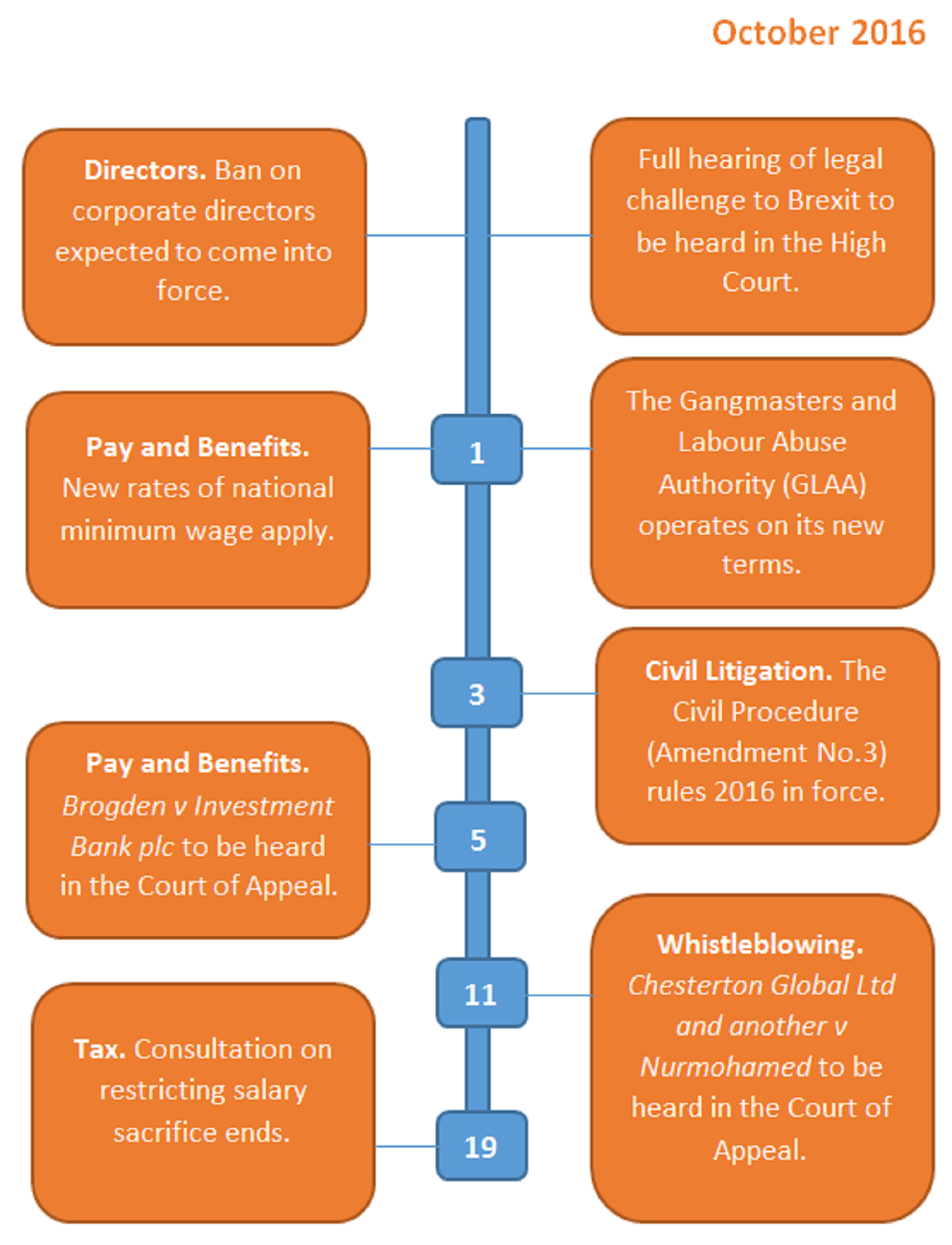Following the summer break, discrimination received a lot of government scrutiny and there were several interesting decisions at the EAT.
The EAT held that protecting a disabled employee’s pay can be a reasonable adjustment. Whether it was reasonable for the employer to have taken that step was a separate question. It also found that there was no service provision change where a new contractor takes over a service for their own commercial purposes and confirmed that an early conciliation certificate extends to a claim of constructive dismissal where resignation occurred after certificate was issued.
The Women and Equalities Committee published a report on pregnancy and maternity discrimination, showing that the number of expectant and new mothers forced to leave their jobs has almost doubled since 2005. The Committee made recommendations which the government will respond with “in due course”. The Prime Minister launched an audit of racial disparities in public services, with the first data for this due to be published before summer 2017. The government also announced the intention to consult on caste discrimination. Finally, BEIS House of Commons Select Committee launched an inquiry on corporate governance, focussing on executive pay, directors’ duties and the composition of boardrooms including gender balance. Submissions are requested by 26 October 2016.
HRMC has published the first draft of regulations implementing the apprenticeship levy and is seeking comments by 14 November 2016 on whether the draft regulations achieve the objectives set out.
The Welsh government is continuing to battle with the UK government over responsibility for the regulation of trade unions in public services. It announced a consultation on hiring agency staff during industrial action. The consultation seeks views on whether to retain the law which prohibits employment businesses from supplying employers with temporary employees to perform duties normally performed by striking workers, should the UK government remove this prohibition.
In the news, the Prime Minister was asked by the Vote Leave Watch group to protect EU laws on employment rights (the government has not responded), Uber was granted a limited judicial review of the English tests requirement, the number of jobs on the online gig economy in the UK has grown by 14% in the last five months, the EHRC launched a new initiative to support pregnancy and paternity rights, the Living Wage Commission concluded that the national living wage is failing low paid workers, Freshfields Bruckhaus Deringer has removed the phrase “Dear Sirs” from all communications, Sports Direct and other companies moved away from zero hours contracts and UNITE published a survey showing that 60% of workers support scrapping of zero hours contracts.
In our blog, Nicola Fulton and Krysia Oastler explained how to transfer data to the US now that safe habor is no longer safe, Craig Rajgopaul analysed the implications of the EAT’s recent decision in William Jones School v Parry, which held the tribunal rule requiring rejection of a claim without hearing is ultra vires and Jules Quinn looks at the dangers and pitfalls of dress code policies and the necessity of tailoring dress code policies to fit individual cases.
Next month
Key developments to look out for in October 2016.

We are also still waiting for the delayed consultation on grandparental leave, the government response to the gender pay gap consultation and the Ministry of Justice review on employment tribunal frees to be published, all of which were due either to be published in “summer 2016” or “soon”.
For recent and forthcoming developments, don’t forget What to expect in employment law, Case tracker and Legislation tracker.



